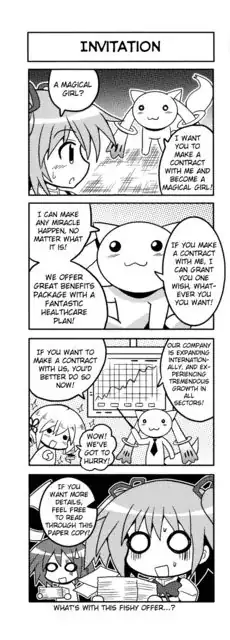This answer is somewhat speculative, but, I think, not completely off-base.
As Frosteeze's answer says, the Incubators don't really care at all about witches; the witches are sort of a nasty byproduct of the energy creation process, the same way that burning fossil fuels creates carbon emissions. If I recall correctly, the energy that the Incubators need is released as the magical girl becomes a witch, at the height of her despair. It doesn't matter to them that there's a witch left over afterwards.
We know the Incubators have no compunctions about hiding information from girls they make contracts with, so I always imagined the first magical girls were created in a scenario like the following:
- The Incubators land in ancient Sumeria and find some young girls whose emotions are in turmoil. There was a lot for young girls to be in turmoil about in ancient Sumeria, so this was probably not hard.
- The Incubators offer to grant the girls' wishes and give them magical powers.
- The girls agree. They become magical girls, but there are no witches to fight, so they go off and become prophets or great warriors. This requires them to use magic, which causes their soul gems to cloud.
- Eventually, these girls succumb to despair due to events in their own lives. This was probably quicker and easier to achieve in ancient Sumeria, where life was harder overall.
- The first crop of magical girls become witches.
- The next crop of magical girls kills off these witches and starts the whole cycle.
(We know the Incubators go back at least to ancient Egypt, since, as we discover in Episode 11, Cleopatra was a magical girl. And nothing about the scenario substantially changes if we assume it was in Egypt instead of Sumeria.)
The Incubators may not care about witches, but having the magical girls fight them is a useful thing for three reasons:
- It makes the energy harvesting more sustainable. Witches kill people or cause them to kill themselves, as we see in Episodes 2 and 4. If the world gets overrun with witches, the number of potential magical girls reduces. The witches also seem to cause emotional disturbances that, if widespread enough, could discourage people from reproducing, reducing the number of potential magical girls in the world.
- It speeds up the process of pushing the magical girls into despair, which also speeds up energy gathering. This is especially relevant in modern day. An ancient Sumerian girl might have her village razed by bandits once per fortnight; a modern Japanese girl's greatest worry is whether her allowance stretches far enough to buy new shoes.
- It stops the girls from getting suspicious about the deal. As soon as a girl thinks "This is too good to be true", the Incubator mentions the requirement to fight witches. That's not the only caveat, but it's enough to make the deal sound more like a bargain and less like a trap.

